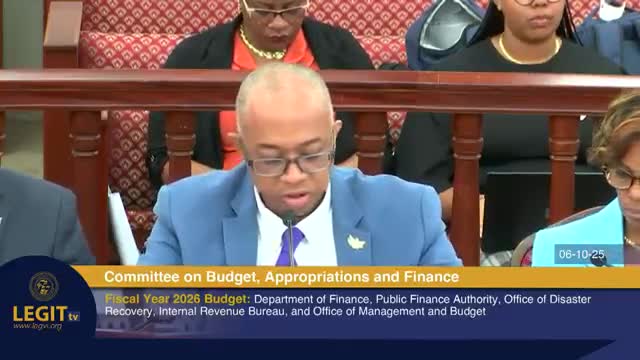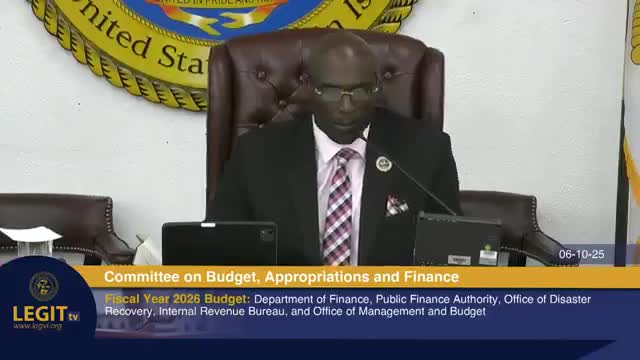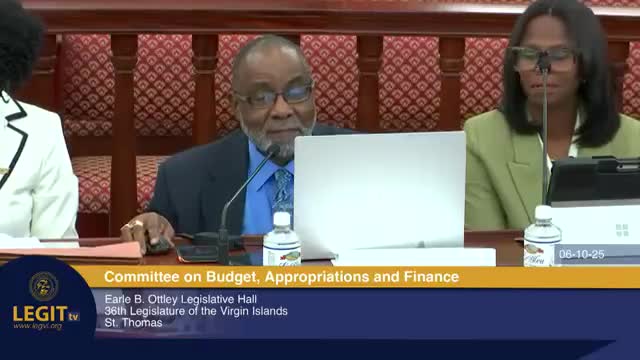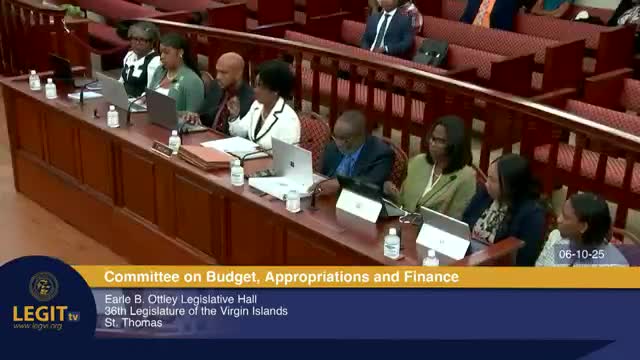Article not found
This article is no longer available. But don't worry—we've gathered other articles that discuss the same topic.

OMB requests $6.4M in general fund for FY2026 and proposes in‑house fiscal responsibility unit to replace party fiduciary

Internal Revenue Bureau seeks $14.06M for FY2026 as collections rise to $599M through May

Public Finance Authority approves $26.11M FY2026 budget; Office of Disaster Recovery seeks $12.21M and $4M seed funds

